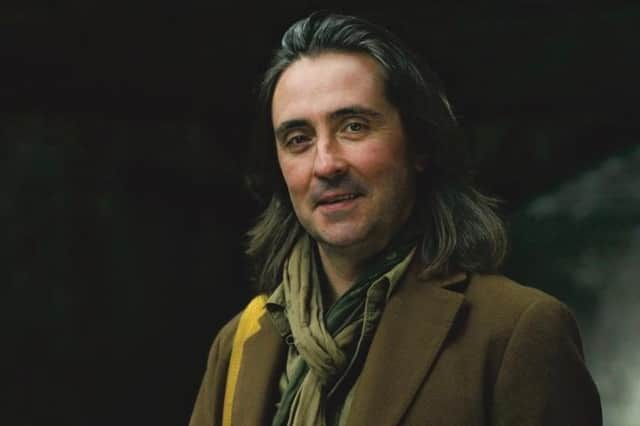Neil Oliver, Wisdom Of The Ancients book review: 'enough platitudes to get him a job with a card company'


This is a hasty and strange book. If you could imagine a collaboration between cheery Tony Robinson from Time Team, talking about some interesting shards that have been dug up, with the vacuous pseudo-profundity of, say, Paulo Coehlo, it might approximate to this work.
In bite-size chunks, mostly to do with Scotland’s past, but taking in some jaunts to New Zealand, Georgia, Turkey and Peru (travel sells well too), Neil Oliver claims he is offering “Life Lessons From Our Distant Past”. One can almost smell the whiff of “Christmas Gift for granny” over the whole measly endeavour. There are far better writers on the archaeological material, far deeper thinkers on “how to be”, and far more serious authors on Scottish history.
Advertisement
Hide AdOliver begins by setting out a kind of anti-intellectual chumminess: “Because I cannot think like a scientist I have always needed stories to help me understand complex ideas. I have opened and begun numerous books on quantum theory but the maths has always got in the way.” Later, again griping about how difficult quantum theory is, he says: “Having no training in the scientific method … I value the company of scientists … I have read as much as I can bear of quantum theory, which is the science of very small things”.
To call the book cobbled together would be an affront to all the skilled workers who cobbled streets. It is repetitive: LP Hartley’s most famous quote, from The Go-Between, is used twice; Nietzsche’s most famous quote is used twice; the site at Aveline’s Hole near Burrington Combe in Somerset is mentioned twice, with the reader nudged about its name as if they had not read it a hundred pages beforehand. “Clever” is always used with a slight sneer. The words “fossil” and “jewel” crop up with regular monotony.
But as I have said countless times before, books contain their own bad conscience. Take this, for example: “My feet in borrowed Wellingtons sank deep into or kited upon the glaur that clung and made halos like Flanders mud on Tommies’ boots. I was aware of every print I made, looking back over my shoulder to see the glyphs recording the tale of my passing though they would not last the day (or would they?). The sky was pewter flat and felt close enough to touch. There were indignant seabirds, and the mud I disturbed smelled over-ripe”. The next sentence begins: “No amount of purple prose can match the sensation.” Well if so, don’t try. There’s also the I-ness of it all – it was important because I did it. Indeed, the introduction refers to the book as an attempt to “splice together” “out-takes”.
One of the most curious things about the book is a stylistic quirk, whereby Oliver relies on religious language and yet disparages religion. “John Knox preached fire and brimstone”; “similar tales can be found all over these islands – this Church-man or that whipping up his congregation into a froth of righteous anger over ancient sites and encouraging their destruction”; “Christianity feels old now”. It apparently isn’t so old, since by page 4 he is quoting Matthew’s Gospel, page 31 has angels being entertained unawares, page 39 quotes Genesis, we get the last words of Jesus on the cross and I lost count of the apocalyptic references. It is also a bit rich to denounce Rome as “dull as the stuff of their blades – bringers of taxation, straight roads and uniforms for dreary jobs with dreary names” and then reference Julius Caesar, Seneca, Tacitus, Paulinus and Alexander Pope’s translation of Horace. This kind of thing might work on television, but it’s cauld kale in prose.
Then we get to the good stuff: what will I learn from the past about living now? Hmm. Stories are good, and better than philosophy or science. Oliver has “my faith in the rock, is the only immortality I will ever need”; “we must put family first”; “in a changing world we might at least understand the needs of others of our kind to stop moving, to end the trek somewhere, and stay”; “in 20,000 years nothing we have made means more than home”; “each of us has the power and, more than that, the absolute responsibility to act for the greater good”; a grave “implores us to live in hope”, “to have been loved at all might be everything a person will ever need” – rather than food, an income, a home and purpose? Move over Schopenhauer and Sartre, there’s a new kid in town! This platitudinous guff means at least Oliver will have a career with the Hallmark Cards corporation.
One of the memorable moments involves Oliver hunting and eating crocodile, and it tastes like chicken. “What they are saying without knowing it, is that both taste like dinosaur”. Cute line. But wrong. Birds may be descended from dinosaurs, but crocodiles are not: they branched off from archosaurs. That’s the kind of sloppy thinking that typifies this book. It is sententious and second-hand. No doubt a TV series will come along in the fullness of time. Wisdom of the Ancients? Well, make your own mind up.
Wisdom Of The Ancients, by Neil Oliver, Bantam Press, £20
A message from the Editor:
Advertisement
Hide AdThank you for reading this story on our website. While I have your attention, I also have an important request to make of you.
The dramatic events of 2020 are having a major impact on many of our advertisers - and consequently the revenue we receive. We are now more reliant than ever on you taking out a digital subscription to support our journalism.
To subscribe to scotsman.com and enjoy unlimited access to Scottish news and information online and on our app, visit https://www.scotsman.com/subscriptions
Joy Yates
Editorial Director
Comments
Want to join the conversation? Please or to comment on this article.